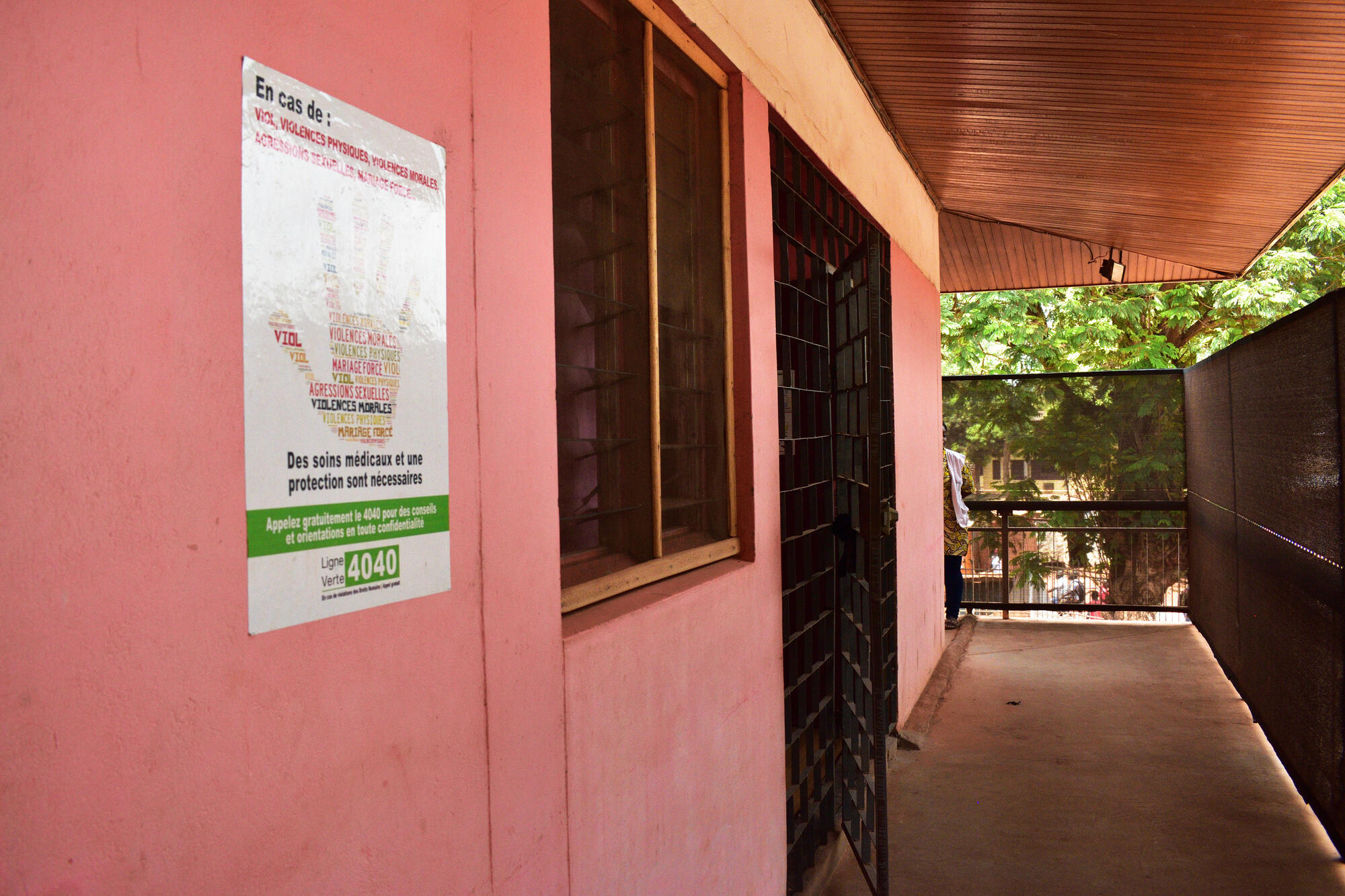Tongolo means hope

At our Tongolo project in the Central African Republic, survivors of sexual violence can find both physical care and psychological support. Mental health specialist Gisela Silva Gonzalez takes us inside this important and powerful place.
Today a middle-aged man came to Tongolo, our specialist service for survivors of sexual violence. He had been assaulted by several men from an armed group.「I was going to get bread for my children and that's when a man pointed at me with his submachine gun. He told me that if I didn't accept he was going to kill me… but I was already dead. " Why? I have been working in the field of sexual violence for nine years. I've heard a lot of stories and every time I keep asking myself the same question "Why? “It is incomprehensible, even for professionals who work on this subject, to want to understand how one person can harm another person.
"Your heart is hurt”
This gentleman explained to us that someone who was walking down the street talking about the Tongolo project arrived at his home:
"When he explained to me that I could come and get help here, I thought to myself, Tongolo is my hope and I came."
You are courageous, sir, to come and speak even if it is not easy, even if you are injured, you have found a strength in yourself, in your inner fort to come here to seek help, to speak and alleviate your suffering.
“My heart is not the same now. It beats very hard with a weird rhythm, it goes 'pom, pom, pom'. It's no longer my heart, this heart belongs to fear, the fear of dying.”
Your heart, sir, is hurt. It is reminding you that it suffered tremendous suffering, an unexpected and traumatic event, an event that even I cannot explain to you. This heart is reminding you to take care of it, for it is still alive, you are still alive and you are with us.
Psychological wounds
Traumatic events leave a very deep psychological wound.The first thing to do is to show the person that they are not on their own, that we will listen to them supportively, without judging them. Reassure them that we are here, that what happened to them is not their fault.
An event of this magnitude is never expected. We have not written such a thing in our life plans. That’s why we created the Tongolo project, because we know that loneliness after abuse can be even more harmful.
Agents of resilience
We want to create a safe space for people to express themselves freely, to express their anger, their sadness, their rage, their fear, their joy, their worries and their suffering, all surrounded by kindness.
The first contact after a traumatic event is essential. Indeed, this will define what vision the person will have of their story in the days that follow. The story that the person tells themselves will imprison them in this event or free them from their prison of trauma.
This is why we call the professionals who are listening to these people for the first time the “agents of resilience”. We are mental health professionals who give people hope. We save lives, and we support our patients to find ways forward.
It takes time
“Thank you for your words. Here I received injections to help me, the midwife explained to me what you are going to do with me. I will come back, thank you very much. Thank you for listening to me, it is the sadness that is there in me, in my heart, I feel my heavy heart. I went to get bread and suffered that."
The patient told me that he grows vegetables, but it takes time. Time, water, effort and being mindful every day.
Sir, see your plants as yourself: it takes time and patience to tend them, and one day you will see that they are ready and ripe, just like you. One day you will see that everything will be better.
You have a lot of strength in you, coming here, wanting to keep looking for a way to find bread, gratitude, love for your children, dedication, patience. These are feelings that you help, which exist in your home, which let you know that you are still alive.
Lifeforce
These patients come to seek help, because there is still a life force in them that prompts them to want to overcome this situation. It is with this strength that we must work. The will and the capacity are already there – we only need to accompany it so that it flourishes.
We need to let the person know that even though the pain is there, we are together. We are there for the person and to help them come back to life after this event.
Finally, I would like to say to this gentleman, on my behalf and perhaps on behalf of the other professionals who accompany survivors like him:
Thank you, sir, for coming and for giving me the hope that you still have the strength and courage to live… thank you for letting me know that all of our efforts are worth it.





Leave a Comment